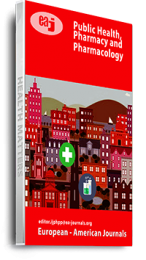Universal health coverage (UHC) connotes access to the full range of quality health services, when and where they are needed, without financial hardship, accessible by all citizens. Achieving UHC is one of the targets the nations of the world set when they adopted the 2030 timeline. A key determinant to achieving this is the way a country finances its health care system. Through a desk review, the study reviewed a segment of a Baseline line Study (BS) conducted in Plateau State, focusing on the reflection of National Health Financing Policy and strategy since its inception in 2006 on Nigerians in accessing quality and affordable healthcare. To achieve this, we narrowed and categorized aspects of the policy provisions into 3 thematic areas. Reviews of relevant literatures were also consulted. Findings showed that the reflection of the policy and strategy has not achieved much after over 16 years of its inception. Major challenges associated with the policy include lack of political will on the part of the government, weak institutions in the aspect of implementation, limited knowledge and literacy on the policy programmes. The paper recommended that there is the need to have independent institutions and a government with the political will to effectively manage the many challenges in the Nigerian health sector.
Keywords: Health Policy, Health financing, Universal Health Coverage, health strategy

